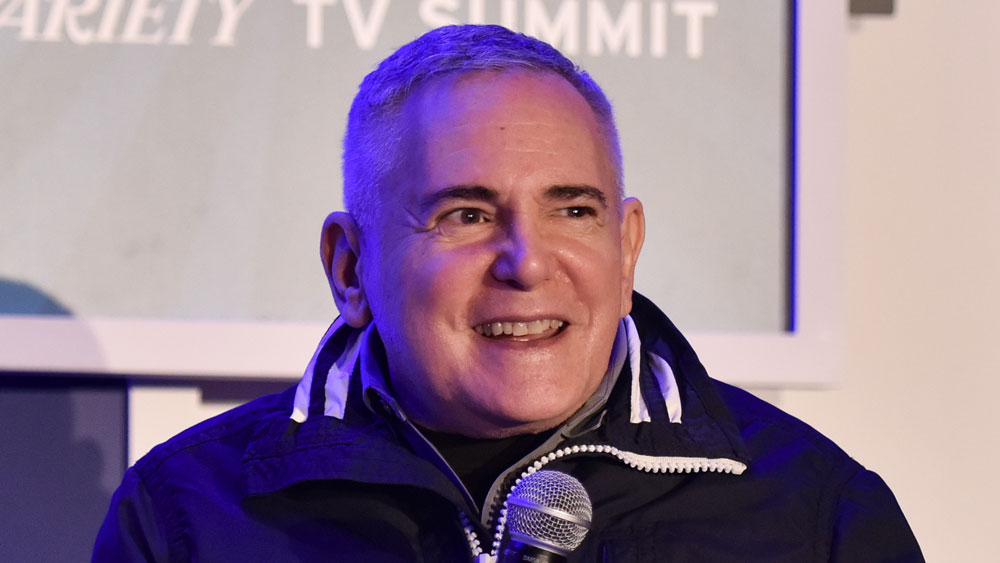Craig Zadan Taught GLAAD to Never Take No for an Answer (Column)
By Rich Ferraro
LOS ANGELES (Variety.com) – One of my fondest memories is interviewing Craig Zadan and Neil Meron while producing an honoree video reel that would play before they accepted the Vito Russo Award at the 23rd Annual Media Awards in 2013. The interview poetically took place in the heart of the theater district at Sardi’s. Growing up as a gay man, I found community and solace in so many of the musicals that Zadan and Meron were behind so getting to sit down with the icons was a dream come true. The two recounted their favorite films and how they not only knocked down the closet door behind the scenes, but fearlessly included LGBTQ characters and storylines that reached countless audiences around the globe.
We didn’t have a presenter lined up yet to give the Vito Russo Award to Zadan and Meron when the interview took place, but Craig immediately told me not to worry. He offered to help, as he had done for our team at GLAAD so many times before. He took out his cell phone and dialed Bernadette Peters, and then he and Meron called John Stamos in front of me. Just like that the award presenters were locked. It was a true New York moment – Bernadette Peters said yes to the iconic theater producer who literally wrote the book on Sondheim (“Sondheim & Co.”) in the middle of Sardi’s, a true theatre institution. But that’s what Craig always did and how LGBTQ advocates will remember him – he brought together Hollywood’s biggest players to advance LGBTQ people and issues. He did it without ego and with pure heart and passion.
The Vito Russo Award that he accepted with Meron at the GLAAD Media Awards is given to media professionals who use their platform to accelerate acceptance of LGBTQ people, but it had a special meaning to Zadan.
In the lead up to his honor at the GLAAD Media Awards, he sat down with me to share details about Vito Russo, who he called his best NYC friend and who founded GLAAD in 1985. During his life, Vito Russo pushed news and entertainment media to not merely include LGBTQ people and issues, but to do so with fairness, accuracy, and dignity. He fiercely believed in the power of the media, and its ability to change hearts and minds, which resulted in the formation of GLAAD. Zadan told me about his own firm belief in GLAAD’s mission as a media advocacy organization and in an industry that could and should be more inclusive. This was long before diversity and inclusion became a mandate in Hollywood. Zadan, together with Meron, previously volunteered as producers of the GLAAD Media Awards, because the awards raise the bar for LGBTQ inclusion in the media, and also because of his close friendship with Russo.
Zadan not only helped GLAAD carry out Russo’s vision over the years, but also did so through his own projects, even at a time when LGBTQ images in the media were few and far between. Though most well known for their beautiful musicals and work on events like the Oscars, Zadan and Meron raised the bar for LGBTQ images in Hollywood as well. They produced “Serving in Silence,” a 1995 NBC film about lesbian Colonel Margarethe Cammermeyer, who challenged “Don’t Ask, Don’t Tell.” “It’s All Relative” was one of the earliest broadcast sitcoms with a gay couple at the center, and their TV movies “What Makes a Family” and “Wedding Wars” told stories of marriage and LGBTQ families. The hit Lifetime drama “Drop Dead Diva” earned five GLAAD Media Award nominations for storylines ripped from the headlines including episodes dedicated to a transgender student and a baseball player’s coming out. “Smash” was not only a godsend to musical theater fans, but included loving gay couples who helped earn the NBC drama a GLAAD Media Award.
The hallmark of a LGBTQ storyline from Zadan and Meron is characters who were entertaining, relatable, and personified our shared humanity. Viewers could not watch without having their eyes opened about issues like marriage equality or general LGBTQ acceptance. Their powerful projects weren’t limited to LGBTQ issues. The two also made strides on race with their all black cast of Lifetime’s “Steel Magnolias” and in “A Raisin in the Sun” to ABC.
Zadan told me that his friend Vito Russo refused to take no for an answer in GLAAD’s early days when news outlets, networks and studios slammed doors in his face. Zadan and Meron did the same when executives said audiences weren’t ready for LGBTQ stories. Zadan also proudly recounted how the Republican National Committee once targeted him and Meron when their mini-series “The Reagans” exposed the former President’s decision to ignore the HIV/AIDS crisis. They worked closely with GLAAD and LGBTQ advocates to push back and move the series forward. They would not take no for an answer.
During his acceptance speech for the Vito Russo Award, Zadan said: “We wanted to take on social and political and LGBTQ stories which no one at the upper level of the entertainment industry ever really wants to do. So you have to fight and you have to persuade and you have to manipulate the studios and the networks. And you have to go back – over and over again – until they say yes.”
I joined so many in mourning Zadan’s passing yesterday, celebrating his works, and in being thankful that I had the chance to meet and learn from a Hollywood legend. Zadan believed in the power of Hollywood to create social change and proudly carried on the legacy of his friend Vito Russo. I know LGBTQ media advocates and the staff of GLAAD will now honor and continue Zadan’s legacy, and Hollywood should as well.
Rich Ferraro is the chief communications officer for GLAAD.

